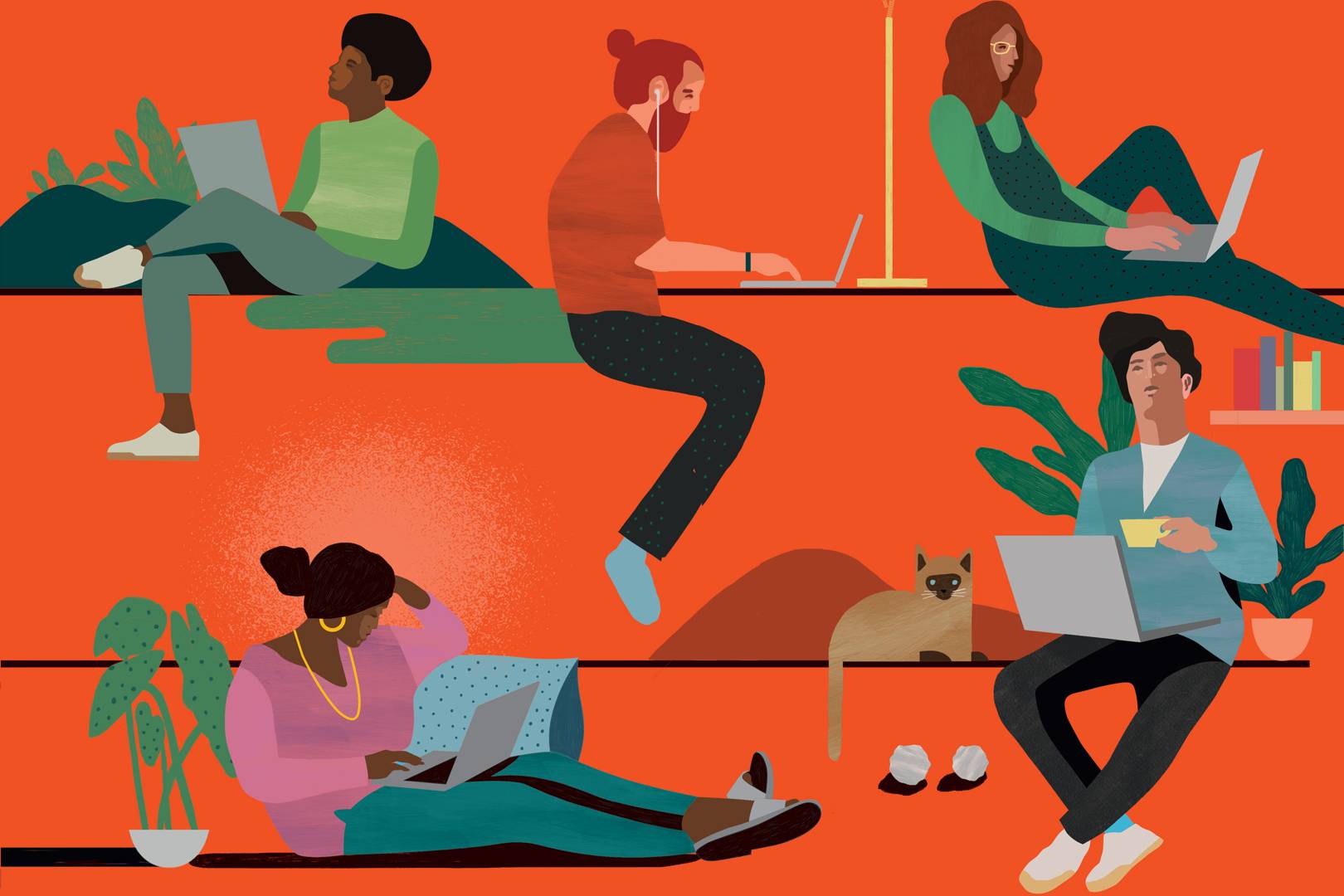Covid-19 has shown how easy it is to automate white-collar work
The main barriers to automation were never technological, they were cultural
by Daniel Susskind
Futurist Roy Amara, an influential figure in Silicon Valley, once said that “we tend to overestimate the effect of a technology in the short run and underestimate the effect in the long run”. This could be said of the impact of digital technology on white-collar work in the age of Covid-19.
In this crisis, white-collar workers have been using technology in ways and to an extent that would have seemed barely imaginable until recently. Doctors see their patients online. Teachers provide virtual lessons. Court work is conducted over the internet.
Yet although these changes are striking, they are not a fundamental transformation in the way that most white-collar workers do their jobs. In fact, most are working as they have always done – just at a distance, without the traditional interpersonal touch. This is not a technological revolution in white-collar work; this is just working from home.
And this is how it will be for some time. The initial hope was that this crisis would be short-lived: we would lock down, put the economy into a sort of suspended animation, but swiftly return to normal economic life once the virus had passed. Now we know that this view was wrong, and the last few months have been dominated by attempts to turn temporary technological fixes into far more permanent ways of working.
But what will the world of work look like in the days and months to come? Looking ahead, I can see two possible futures unfolding – and in both, technology will play a critical role.
The first is the “vaccine” future. Here, in the next 12-18 months, we find a vaccine or an effective treatment. And that allows us to get a little closer to our pre-Covid-19 lives.
But it will not be a complete return to that world. One way to think about our current plight is that we are engaged in a massive unplanned pilot scheme in the use of technology in the workplace. We are going to learn some things do not work well at all, but we are also going to find that others do – and these will remain.
Last year, for instance, fewer than one per cent of doctor’s appointments were done remotely. But now, about 93 per cent are done at a distance. Given that most people are reported to be pretty happy with this alternative, it is unlikely – and undesirable – that we return to our old ways of working.
The second is the “no vaccine” future. And this is a far more troubling proposition. The pandemic has created a strong incentive to automate the work of human beings; a machine, after all, does not have to follow social distancing rules, will not get infected and fall ill, or have to isolate itself to protect its peers.
Until now, this incentive has been suppressed by measures to encourage employers to keep employees on their books; the British Government, for instance, is still paying up to 80 per cent of many of their wages. But inevitably, this state support will be wound down. And so long as we do not have a vaccine or treatment, that incentive will continue to strengthen.
Perhaps the most compelling reason for thinking a disruption lies ahead, though, is a realisation on the part of many professionals themselves. Over the past five years, I have heard doctors worry about the implausibility of seeing patients online, been told by teachers that students cannot learn properly unless they are in the same room, and listened to lawyers insist that court work could never be done virtually. And yet, in a matter of weeks, telemedicine, online learning and virtual courts have become the norm.
The main barrier to transformation in the professions was never technological. Many of these technologies have been around for years. The main barriers were cultural. Most people are resistant to new ways of working, white-collar workers particularly so.
With the Covid-19 crisis, those cultural barriers have largely disappeared, leaving many preferences for traditional ways of working looking more like indulgences. They are unlikely to return with the same vigour once this crisis eventually does pass, and professionals again start to think more radically about their future.
Daniel Susskind is a fellow in economics at the University of Oxford and the author of A World Without Work
More great stories from WIRED
💾 Inside the secret plan to reboot Isis from a huge digital backup
⌚ Your Apple Watch could soon tell you if you’ve got coronavirus. Here's how
🗺️ Fed up of giving your data away? Try these privacy-friendly Google Maps alternatives instead
🔊 Listen to The WIRED Podcast, the week in science, technology and culture, delivered every Friday